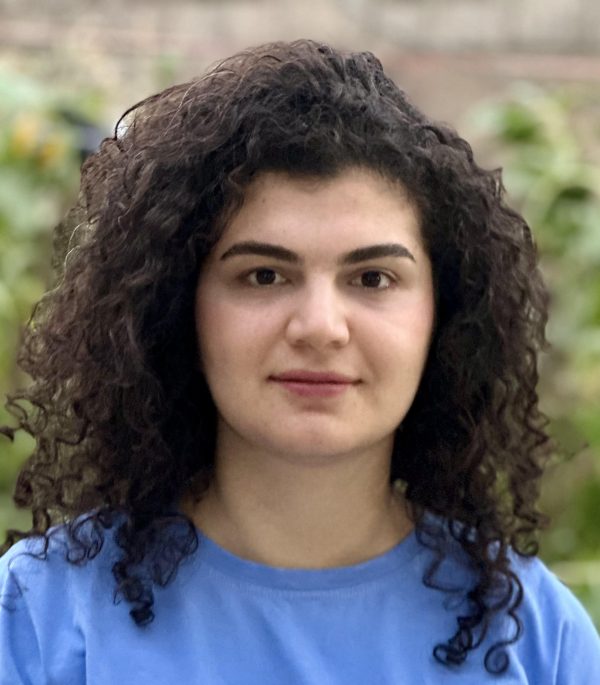
Why Kobani Matters for the Kurds of Syria
After the fall of the Assad regime, all Syrians took a deep breath, felt relieved, and began talking about and even working on a new, revived Syria. Although there are many issues that need to be addressed sooner or later, Syrians in general are hopeful that their country will see a brighter future.
Syrian Kurds share these feelings. The previous regime suppressed them, too. Thousands of Kurds were detained and killed over the past 50 years by the Assad regime, accused of expressing their political views or simply their Kurdish identity. Over 100,000 Kurds were stripped of citizenship, accused of being ’foreigners’ who did not belong in Syria. The Kurdish language and culture were outlawed.
Yet Syrian Kurds have almost become experts in analyzing ‘what will happen next’ after any dramatic, sudden, or unexpected event. For many, the fall of the old regime does not mean that Kurdish identity is no longer under threat.
Many Kurds are worried that they might be excluded from the new government or any upcoming elections. However, they cannot be too occupied with these thoughts of abstract political developments. First, they are concerned about their own safety and security.
They expect that Turkey may launch an offensive, bomb civilian areas, and even urge its affiliated factions to increase their violations and attacks against civilians in Afrin and Sere Kaniye in order to occupy more territory and prevent the emergence of any kind of Kurdish autonomy in a future Syria.
This is not just a prediction made by Syrian Kurds. Turkish attacks have been a reality for the community for years, in particular since the Turkish invasion of Afrin in 2018.
The fears quickly came true. Right after the announcement of the fall of the regime, Turkish-backed Syrian National Army (SNA) factions attacked Manbij. They faced resistance, but the Syrian Democratic Forces (SDF)-affiliated Manbij Military Council ultimately chose to withdraw as part of a U.S.-brokered deal. That did not deter the armed members of SNA from committing violations against Kurdish families there.
Turkey then, not a surprise, shelled villages in Kobani. Strikes continued until the moment of writing this report, killing dozens of civilians. An ambulance vehicle was targeted, killing everyone in it. Two journalists were killed in a drone strike while reporting on violations of the ceasefire. A mother and her twelve-year-old daughter were killed when Turkey shelled their village.
These attacks would be tragic anywhere. In Kobani, in particular, they represent a pointed threat. Whoever in the world hears or reads the word Kobani immediately thinks of bravery and courage. Even German Foreign Minister Annalena Baerbock, criticized by some for being close to Turkey, described it this way.
This is because the people of Kobani, the fighters of the Peoples’ Defense Units (YPG) YPG and Women’s Defense Units (YPJ), and volunteers from all parts of Kurdistan defeated ISIS there in 2015, in a battle that would mark the end of the jihadist group’s territorial expansion. Many young Kurdish men and women from this city sacrificed their lives in fierce battles to defeat ISIS, in partnership with the Global Coalition.
ISIS was not the first threat to Kobani’s Kurdish population. Decades ago, Hafez al-Assad brought people from other areas of Syria to settle them in Kobani for purpose of Arabization (demographic change) as part of the ‘Arab Belt’ policy. However, the people of Kobani did not let that happen. This is one reason why, until now, Kobani remains an almost exclusively Kurdish area — and why, many in Kobani believe, it is constantly a target.
Now, Turkey wants to do what Assad and ISIS could not — remove Kurds from Kobani for good. The people of northeast Syria want to know: For how long will the people of Kobani have to tolerate Turkey’s provocation? Why do they always have to fight, resist and sacrifice their lives and their sons and daughters to prove that they only defend themselves and their regions?
The people of Kobani did not fight ISIS for recognition or international sympathy. They were protecting their land and their community. They were willing to defend these to their last breath and not allow their enemies to take them. However, the people of Kobani also know that their victory made the world more secure. They are proud of the international support they received, and feel disappointed when they see that their sacrifices are forgotten by their international partners as they face new threats.
It is the responsibility of the international community and the Global Coalition to take action diplomatically to help them live in peace. Turkey that never misses an opportunity to discredit Kurds — whether they are civilians or members of Kurdish-led security forces protecting communities from ISIS and Turkey-backed militias. Turkish leaders present people in this region to the Middle East and the wider world as ‘foreigners’ and as ‘terrorists’ who have intervened in the region, a distortion of history similar to that used by the Syrian regime.
If Turkey’s intentions are not exposed and the international community remains silent with each Turkish move against Kurds in north Syria, Kobani, and then all Syrian Kurdish regions, might suffer new massacres and displacement. Kurdish people will see it as another green light for their persecution.
The Global Coalition can impose balances on the ground to prevent any destabilizing, radical change. The least it can do is protect Kurdish people and preserve its partnership with the SDF by remaining in Kurdish-populated areas under SDF control indefinitely. From a Kurdish perspective, the Turkish state cannot be trusted under any conditions or at any time. Therefore, ongoing international mediation and monitoring will be necessary to ensure peace.
(Photo: Kurdish Peace Institute)



